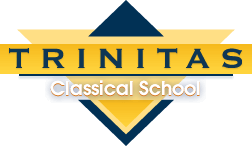Trinitas is registered for the National Geographic GeoBee! The GeoBee is designed to inspire students’ curiosity about the world. Our school bee will be held the last week of January, and all students will be participating. Grades K-2 will get a taste of the GeoBee with classroom activities and quizzing, including grade-level appropriate questions. Grades 3-8 will compete in classroom rounds much like the Spelling Bee. The questions are oral, prepared by National Geographic, and cover a wide range of geographic topics. While 3rd graders will get one year of practice, 4th-8th graders will compete for slots in the school finals. Our school champion will advance to the next level of competition, an online qualifying test to determine competitors in the State GeoBee.
Tips to prepare for the GeoBee, for Grades 3-8 (and eager, younger students):
Start with a world map, globe, and atlas – become very familiar with the continents, countries, states and provinces, then the largest islands, largest bodies of water and other major physical features (mountain ranges, deserts, lakes, rivers), and major lines of latitude and longitude.
Use blank outline maps of the world, continents, and states – test yourself by attempting to fill them in. The GeoBee Study Toolkit contains some outline maps, as well as sample GeoBee questions. The Toolkit is a great place to start.
Take as many practice quizzes as possible – there are countless multiple-choice, online geography quizzes and games. National Geographic offers a daily, online GeoBee Quiz, a free app called the GeoBee Challenge App, and more at https://www.nationalgeographic.org/education/student-experiences/geobee/study/.
Prepare flashcards or another technique to memorize the capitals of the countries, capitals of the fifty United States, and state nicknames. And memorize basic earth facts, such as the highest, lowest, and deepest points around the world, and other earth “extremes.”
Build your knowledge – A good atlas or geography reference book makes maps come alive with other information that can be beneficial to know for the GeoBee, such as population, religions, languages, animal and plant life, climate, economics, and monuments unique to different parts of the world. Knowledge of world history is also a bonus.
